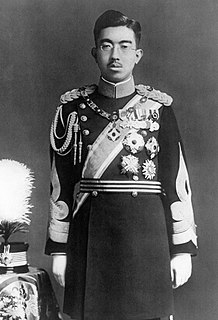A Quote by Albert Camus
In our wildest aberrations we dream of an equilibrium we have left behind and which we naively expect to find at the end of our errors. Childish presumption which justifies the fact that child-nations, inheriting our follies, are now directing our history.
Related Quotes
We plan our lives according to a dream that came to us in our childhood, and we find that life alters our plans. And yet, at the end, from a rare height, we also see that our dream was our fate. It's just that providence had other ideas as to how we would get there. Destiny plans a different route, or turns the dream around, as if it were a riddle, and fulfills the dream in ways we couldn't have expected.
The significance of our lives and our fragile planet is then determined only by our own wisdom and courage. We are the custodians of life's meaning. We long for a Parent to care for us, to forgive us our errors, to save us from our childish mistakes. But knowledge is preferable to ignorance. Better by far to embrace the hard truth than a reassuring fable. If we crave some cosmic purpose, then let us find ourselves a worthy goal.
Do any of us, except in our dreams, truly expect to be reunited with our hearts' deepest loves, even when they leave us only for minutes, and on the most mundane of errands? No, not at all. Each time they go from our sight we in our secret hearts count them as dead. Having been given so much, we reason, how could we expect not to be brought as low as Lucifer for the staggering presumption of our love?
Apocalypse does not point to a fiery Armageddon but to the fact that our ignorance and our complacency are coming to an end. The exclusivism of there being only one way in which we can be saved, the idea that there is a single religious group that is in sole possession of the truth—that is the world as we know it that must pass away. What is the kingdom? It lies in our realization of the ubiquity of the divine presence in our neighbors, in our enemies, in all of us.
We should be most careful about retreating from the specific challenge of our age. We should be reluctant to turn our back upon the frontier of this epoch... We cannot be indifferent to space, because the grand slow march of our intelligence has brought us, in our generation, to a point from which we can explore and understand and utilize it. To turn back now would be to deny our history, our capabilities.
I am seized with an abiding fear regarding what these two instruments are doing to our society, our culture and our heritage. Our history will be what we make it. And if there are any historians about fifty or a hundred years from now, and there should be preserved the kinescopes for one week of all three networks, they will there find recorded in black and white, or color, evidence of decadence, escapism and insulation from the realities of the world in which we live.








































